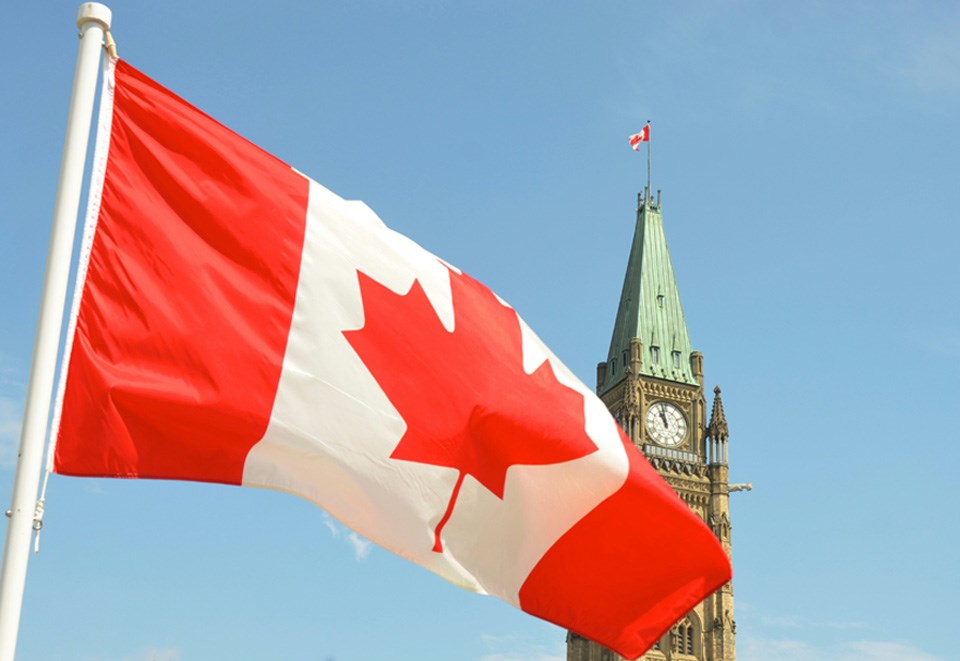The American dollar has fallen by 10 per cent against major global currencies—including the Canadian dollar—since Donald Trump returned to the White House. While exchange rates fluctuate for many reasons, this decline highlights broader economic and geopolitical instability under Trump’s leadership.
With roughly 75 per cent of our exports going to the U.S. and shared military and geographic ties, Canada cannot afford to ignore the growing risks.
These risks are part of a broader pattern. The idea of American decline isn’t new. But Trump’s return amplifies the trend. His economic nationalism, erratic foreign policy and disregard for multilateral alliances are weakening the foundations that long supported U.S. global leadership.
Historically, America’s power was built on more than just military strength. After the Second World War, the U.S. fostered multilateral cooperation, underpinned the Bretton Woods system and supported global reconstruction. The U.S. dollar became the world’s primary reserve currency—a position it still holds, accounting for just under 60 per cent of global central bank reserves, down from 71 per cent in 1999. Canada benefited greatly from this order, with stable access to U.S. markets and investment.
That foundation is now under strain. Trump’s tariff policies and transactional diplomacy have pushed traditional partners to seek alternatives. His abrupt withdrawal from the Paris Climate Accord, threats to NATO and rejection of the World Trade Organization’s dispute system have eroded confidence in the U.S. commitment to the rules-based order.
The rise of BRICS—a bloc of large, non-Western economies including China, India, Brazil and Russia—is one sign of this shift. Together, BRICS nations now account for over 31 per cent of global GDP (by purchasing power parity), surpassing the G7’s 30 per cent. More than 40 additional countries have expressed interest in joining. While not yet cohesive enough to rival the U.S., the group appeals to many in the Global South disillusioned with Western-dominated institutions.
Some observers argue that predictions of U.S. decline are overblown. America still leads in innovation, higher education and military power. The U.S. dollar remains dominant in global transactions, and its cultural influence endures. These points are valid—but leadership depends not only on strength, but also on predictability, partnerships and moral credibility. That is what’s being eroded.
Domestically, the U.S. is grappling with rising debt, political dysfunction and social polarization. Trump’s immigration crackdown, legal battles and attacks on democratic norms deepen internal fractures. These make the U.S. a less stable partner for Canada—politically, economically and diplomatically.
Military failures—from Vietnam to Iraq to Afghanistan—have further undermined American confidence and credibility. The U.S. role in supplying arms to conflict zones, including the ongoing assault on Gaza, has provoked international outrage. As a close G7 ally, Canada risks being implicated by association.
Canada must also consider what a post-American world might look like. As Washington’s dominance fades, middle powers like ours will need to recalibrate. That means expanding trade and security partnerships beyond the United States, particularly in the Indo-Pacific and among Commonwealth and EU allies. It also means investing in domestic resilience: energy, critical infrastructure, manufacturing and cybersecurity, all the while respecting Indigenous sovereignty rights, to reduce overreliance on our southern neighbour.
Some empires decline gradually, others collapse. Britain adjusted to its reduced status post–Second World War. France’s fall in the 18th century was chaotic and violent. Canada weathered both. The question now is whether we have the foresight and resolve to manage the next imperial transition.
The answer lies in sober analysis, not nostalgia. Canada’s prosperity cannot be permanently tethered to a single partner, especially one in turmoil. It’s time to build new bridges and reinforce our own.
Gerry Chidiac specializes in languages and genocide studies and works with at-risk students. He received an award from the Vancouver Holocaust Education Centre for excellence in teaching about the Holocaust.
The commentaries offered on SaskToday.ca are intended to provide thought-provoking material for our readers. The opinions expressed are those of the authors. Contributors' articles or letters do not necessarily reflect the opinion of any SaskToday.ca staff.




